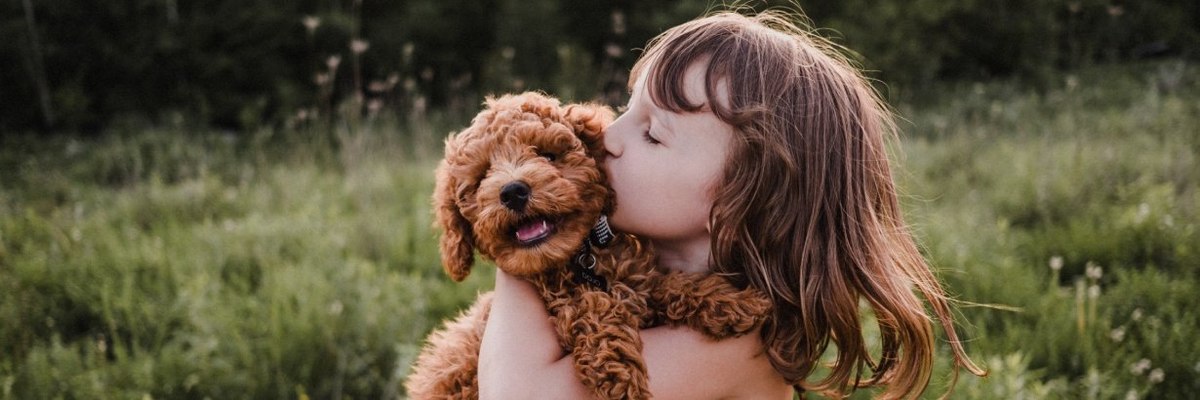Few things arouse such strong feelings, on both sides, as animal welfare. The papers and news bulletin have been full of the fate of Geronimo, the black alpaca condemned to death after twice testing positive for bovine tuberculosis. And there’s been the controversy over Pen Farthing, the ex-marine, who chartered a plane to rescue a hundred and seventy dogs and cats from his animal shelter in Afghanistan. Animal welfare could prove a real headache for the government too. This autumn an animal sentience bill will be debated in the Commons. Hotly debated. Passions, as they say, are running high on both sides. Too high perhaps? Have we got our relationship with animals right? Are we too sentimental or too cruel?
It would be easy to dismiss the Geronimo story as just a typical ‘silly season’ thing the papers always get up to at this time of year. News editors have little proper news to report so they grab at anything, especially if it allows them to fill their pages with pictures of cute, cuddly animals such as Geronimo certainly was. But this year the editors weren’t short of news – anything but. And the issue concerning Geronimo was not frivolous, in the way that the skate-boarding ducks of earlier silly seasons might have been. It was deadly serious. Geronimo had been twice-tested for bovine tuberculosis, a fast-spreading disease in animals and one that requires any animal infected with it to be put down. Geronimo’s owner, Helen Macdonald, believed, however, that the tests had produced false positives and wanted a different sort of test applied. Government vets disagreed, there was a tussle, and eventually the government vets prevailed: Geronimo was killed on Tuesday.
But this was after a very public campaign to save him. So wide was the coverage that Private Eye ran a photo of an endangered polar bear clinging on to a last fragment of ice with a bubble from its mouth saying ‘Never mind me, how’s Geronimo?’ Protestors besieged the Gloucestershire farm on the morning he was taken, screaming at the government vets doing their job and it took twenty police officers to shield them. Ms Macdonald declared that the government had always been ‘planning to murder’ Geronimo and a No 10 spokesman felt the need to express sympathy, adding that such events were always ‘highly distressing’.
The Pen Farthing case was on a different scale. Some years ago Mr Farthing, a former marine, set up an animal sanctuary in Afghanistan and when the Taliban took over he wanted to get his animals out to safety in Britain. So he chartered a private plane to do so. But he needed to get the paperwork sorted and find a way of accessing Kabul airport, surrounded as it was by so many thousands of Afghans also desperate to escape. He managed to get through by phone to a special advisor of the defence secretary, Ben Wallace, and there is a recording of him shouting and using threatening expletives at the advisor. In the end, he claims, the government didn’t help him. He insists that he was interested in prioritising ‘pets over people’ – but the fact that he chose to charter a plane to save animals rather than desperate people has led to fierce criticism of him for getting his priorities wrong.
It was pointed out that if the Taliban were out for revenge and score-settling, innocent animals weren’t likely to be their target. And Major James Bolter, a reservist in the Royal Logistics Corps, said: ‘What do I tell those people left behind when they ask me why the UK put more effort into rescuing abandoned animals than in them? I have no answers. I am torn between anger and despair’. Others, however, have praised Mr Farthing’s resourcefulness and his commitment to his animals.
Human beings have long had a conflicted relationship to the animals with whom they share the Earth. It is reflected in the different attitudes of different religions. The Jain religion, for example, is so intent on making sure that humans don’t harm animals that their practices go far beyond a strict vegetarianism. Many Jains wear face masks to prevent them from harming the smallest creatures in the air. By contrast, the monotheistic Abrahamic religions of Judaism, Christianity and Islam take an uncompromisingly robust view of who’s boss. In the Book of Genesis it is written: ‘And God said, Let us make man in our image, after our likeness: and let them have dominion over the fish of the sea, and over the fowl of the air, and over the cattle, and over all the earth, and over every creeping thing that creepeth upon the earth.’
Most of us have taken this very obliging Biblical injunction literally and exploited it to the full. In hunting animals for food it could be said that we do only what other animals themselves do. There’s a food chain and we’re pretty much at the top of it unless we’re unlucky enough to stray in the path of a hungry lion or a lurking alligator. Nature is red in tooth and claw. But, using the manipulative intelligence that humans almost exclusively enjoy, we have taken these ‘natural’ processes to extremes. In Britain alone we raise and slaughter over a billion farmed animals a year for food, and consume over four billion marine animals. And it’s not just to satisfy our stomachs that we exercise ‘dominion’ over animals. We conduct between three and four million experiments on animals. We keep ten million dogs and ten million cats as pets, we breed horses and greyhounds to race, and we imprison animals in zoos so that we can gawp at them. And so on.
Of course we haven’t done this entirely without taking animal welfare into account. There is plenty of legislation on the statute books setting out the do’s and don’ts of how we should interact with animals. And now there is a new Bill before Parliament: the Animal Welfare (Sentience) Bill. What it aims to do is protect the rights of animals who are sentient – that’s to say, vertebrates that have awareness, feelings, emotion and that can experience both pleasure and pain.
On the face of it, it is no more than a piece of post-Brexit sweeping up. When we were still in the European Union the issue was covered by an article buried in the Treaty of Lisbon. This bill, it’s said, merely fills in the gap left by our withdrawal from the EU. Also, it’s claimed, the new law will be extremely modest. All it does is set up an Animal Sentience Committee whose job it will be to monitor all government activity and offer non-binding advice if it thinks some proposed government action could be harmful to sentient creatures.
But opponents detect something much more far-reaching. They think it will provide a focus for extreme animal rights activism. Because the committee will be established by law, not just by the whim of a minister who otherwise could simply abolish it if it became too uppity, it will be a body which activists will incessantly lobby to promote whatever added protection they think animals need. And because ‘sentience’ is such a catch-all notion, they add, the committee will come under huge pressure to adjudicate in favour of ‘feeling’ animals. They foresee a renewed campaign against country sports. They fear the committee will stick its nose into proposed infrastructure projects, making them even harder to get off the ground and they can see the committee throwing in its pennorth against proposed trade deals if they think the country we’re trying to do the deal with has lower animal welfare standards than we have. And, such is the way the world works, they conclude, the committee is bound to try to become too big for its existing boots. They point out (with some justification) that no such committee ever works towards winding itself up, but only towards becoming even more important. We’ll end up having to ban the Grand National and close the zoos and so on.
And none of that might be a bad thing, say supporters of the bill. There is still far too much harm done to sentient beings in this country. Think simply of the hundreds of millions of farmed chickens who suffer lameness and serious pain in their legs in the last weeks of their short life. To most of us this goes on unseen. And there is much else that goes unseen, say supporters of the bill, and that’s exactly why we need the bill. We must expose the cruelty we are still inflicting on our fellow creatures.
So have we got our relationship with animals right? Our exercise of Biblical dominion would suggest not. For one thing we have wiped out whole species by thinking we could control nature to our own advantage. Indeed we may well be in the process of wiping ourselves out as we destroy our own habitat just as we have destroyed the habitat of so many other creatures. Our cruelty is on a global scale and much of the time we don’t even know we’re doing it.
On the other hand, we are doing only what other animals do – exploiting the world for our own advantage and not being too squeamish about whether we hurt the feelings of other sentient beings when we do. The heron doesn’t look too bothered about the feelings of the fish when it swallows it, so for us to be too bothered when we tuck into a chicken dinner is just sentimental (as well as being hypocritical).
Those, then, are the two poles of the argument. Where should we stand between them? What was your view on Geronimo? And Pen Farthing? And do you welcome the animal sentience bill or not?
Let us know what you think.










